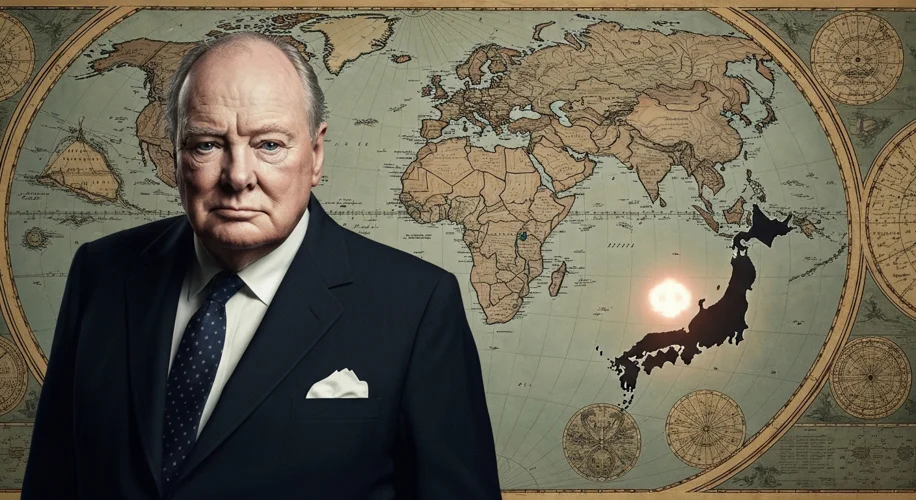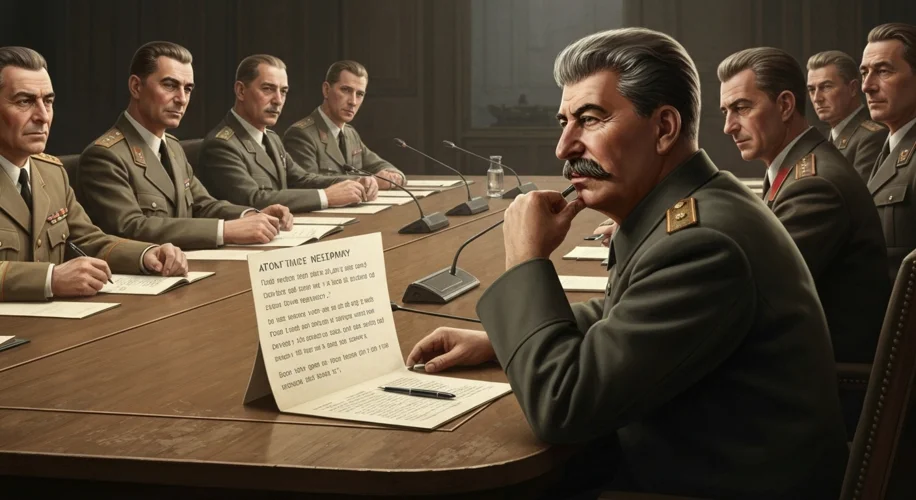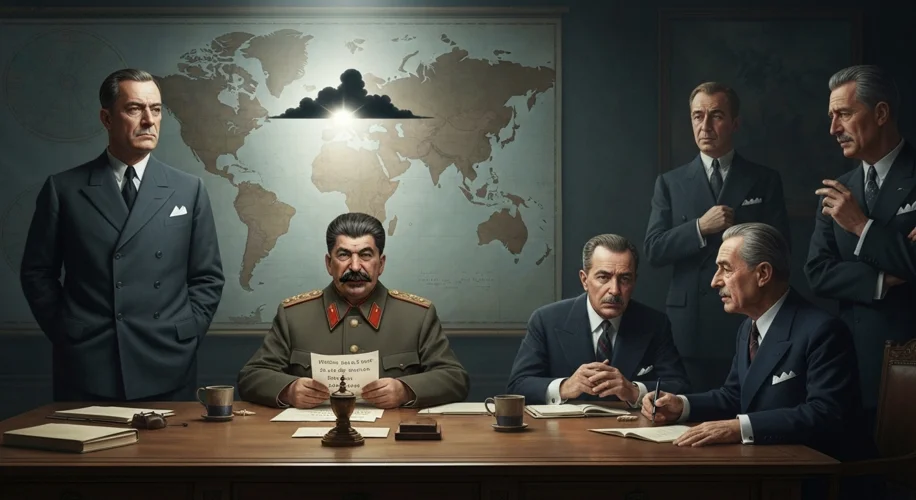The summer of 1945 was a time of monumental shifts. World War II, a conflagration that had engulfed the globe, was drawing to a close. In the Pacific, the United States, having unleashed a weapon of unimaginable power, stood poised to end the conflict with Japan. On August 6th and 9th, the cities of Hiroshima and Nagasaki were vaporized by atomic bombs, marking a terrifying new chapter in human history. But how did the other titans of the Allied powers, men who had steered the course of the war through years of brutal struggle, react to this world-altering revelation?
Winston Churchill: A Glimpse of Victory, a Foreboding Future
For Winston Churchill, the ailing but still sharp-witted former Prime Minister of Great Britain, the news arrived like a thunderclap. Though no longer in office, having been ousted in the July 1945 election, his strategic mind remained keenly focused on the global landscape. Upon learning of the atomic bomb’s successful deployment, Churchill reportedly expressed a mixture of awe and grim satisfaction. He recognized immediately the immense power the United States now wielded and the potential it held to decisively end the war.

Churchill’s reaction wasn’t merely about military victory; it was deeply rooted in his understanding of the precarious balance of power. Having navigated the treacherous waters of appeasement and the early days of the war when Britain stood alone, he was acutely aware of the dangers posed by a resurgent Soviet Union. The atomic bomb, in his eyes, was not just a tool to defeat Japan but also a potent geopolitical asset. He saw it as a deterrent, a means for the Western Allies to maintain a favorable position in the post-war world, particularly against the burgeoning Soviet sphere of influence.
His private thoughts, as pieced together by historians, reveal a man grappling with the ethical implications while simultaneously calculating the strategic advantages. He famously remarked to President Truman, “What must be the feeling in Moscow?” This question underscored his immediate concern about the Soviet Union’s reaction. Churchill understood that the very existence of this weapon would profoundly alter the dynamics between the former allies, sowing the seeds of the Cold War even as World War II concluded.
Joseph Stalin: Suspicion, Speed, and a Scramble for Parity
Joseph Stalin, the iron-fisted dictator of the Soviet Union, received the news through different channels and with a markedly different disposition. While President Truman casually mentioned the successful use of a new, powerful weapon during the Potsdam Conference, Stalin, ever the pragmatist and deeply suspicious, immediately grasped its significance. His spies had already been working to infiltrate the Manhattan Project, and he was aware of the theoretical underpinnings of such a weapon.

Stalin’s reaction was not one of surprise at the existence of the bomb, but rather at its immediate and devastating application. His immediate response was a blend of suspicion towards his Western allies and a fierce determination to accelerate the Soviet Union’s own atomic program. He reportedly told his chief atomic scientist, Igor Kurchatov, “Give me the bomb. Get it to me quickly. We need it.”
For Stalin, the American atomic monopoly was an unacceptable threat. The Soviet Union had suffered immensely during the war, and the prospect of being unilaterally vulnerable to such a weapon was a strategic nightmare. His focus shifted from comprehending the destruction wrought upon Japan to ensuring that the Soviet Union would not be left behind. This news galvanized his efforts to develop an atomic bomb of their own, setting in motion a desperate race that would define the ensuing decades.
Stalin’s perspective was colored by the deep ideological chasm between the Soviet Union and the West. He viewed the atomic bombings not just as a military tactic but as a clear signal of American power projection and a potential tool for coercion. The devastating efficiency of the bombs used against Japan confirmed his belief that the West, particularly the United States, was a formidable and potentially hostile power. The urgency to achieve nuclear parity became paramount, driving Soviet scientific and industrial efforts with ruthless efficiency.
The Shadow of the Mushroom Cloud
The reactions of Churchill and Stalin to the atomic bombings of Hiroshima and Nagasaki were multifaceted. Churchill saw a new pillar of strength for the West but also the nascent shape of a future ideological struggle. Stalin, ever vigilant and wary, viewed the bombings as a stark reminder of the dangers of falling behind technologically and strategically, igniting a fervent drive for Soviet nuclear development. Both men, in their own ways, recognized that the world had irrevocably changed, ushering in the atomic age and setting the stage for the geopolitical tensions of the Cold War.

